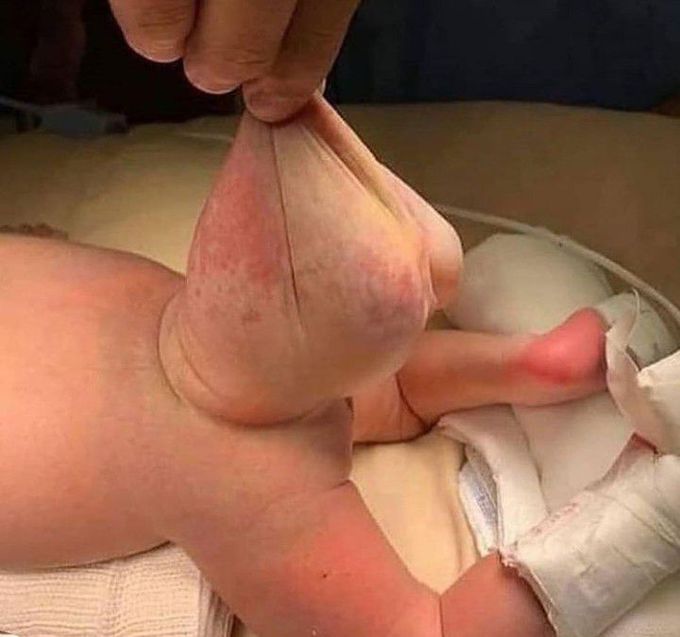


Myelomeningocele
Myelomeningocele, often referred to as a neural tube defect, is a serious congenital condition that affects the development of the spinal cord and the surrounding protective structures. It is a type of spina bifida, a group of birth defects that occur during early embryonic development when the neural tube, which eventually becomes the spinal cord and brain, fails to close properly. In the case of myelomeningocele, a portion of the spinal cord and its protective covering (meninges) protrudes through an opening in the bones of the spine. This results in the exposure of the spinal tissue, which can lead to nerve damage and impairments in neurological function. The severity of these impairments can vary widely, depending on the location and size of the protrusion, as well as the amount of nerve damage that occurs. Children born with myelomeningocele can experience a range of physical and neurological challenges, including muscle weakness, paralysis, problems with bowel and bladder control, orthopedic issues, and even cognitive impairments in some cases. Due to the complexity of the condition, individuals with myelomeningocele often require lifelong medical care and interventions, including surgeries, physical therapy, and ongoing management of associated complications. Medical advancements and early interventions have improved the quality of life for many individuals with myelomeningocele, but it remains a significant medical condition that requires comprehensive medical and social support. Prenatal care and screening can sometimes help identify the condition early, allowing for better planning and management after birth. Credits: https://www.instagram.com/p/CPx-La9h2Rx/?utm_medium=copy_link https://www.ortho.wustl.edu/content/Patient-Care/6885/Services/Pediatric-and-Adolescent-Orthopedic-Surgery/Overview/Pediatric-Spine-Patient-Education-Overview/Myelomeningocele.aspx
Unfortunately, there’s really no cure to myelomeningocele. Surgery is done to decrease the severity of the symptoms. Typically, symptoms may include hydrocephalus, bowel issues, etc. These might not always be the symptoms and such factors depend on the severity.
Depends on the severity of the case. Most cases of myelomeningocele are treated surgically with a repair soon after birth. In some cases, the repair is done while still in the womb prior to delivery.


